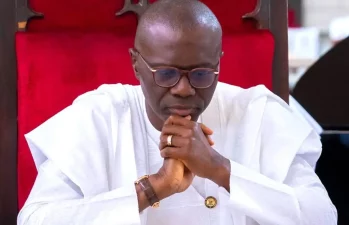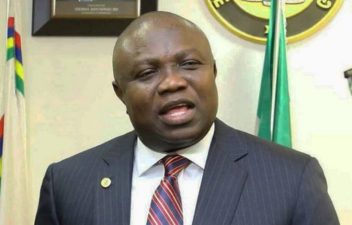*Rules that FCT 25% votes not mandatory
By KEMI KASUMU
The Supreme Court has said that the failure of the Independent National Electoral Commission (INEC) to electronically transmit the results of the 2023 presidential election cannot be a ground to nullify the victory of President Bola Ahmed Tinubu.
It stated this, on Thursday, while in its judgment on the appeal filed by Alhaji Atiku Abubakar of the Peoples Democratic Party.
Abubakar and the PDP had argued that INEC failed to comply with the Electoral Act by not electronically tranmitting the results of the February 25, 2023 poll.
But the seven-man panel, led by Justice John Okoro, held that, “The failure to transmit results by INEC did not affect the results of the election.
“Accordingly, this issue is resolved against the appellants.”
The court said it agreed with the “judgement of the court below that the appellants abandoned the duty imposed on them but relied solely on INEC’s failure to transmit the results in real-time.
“The court below held that the IReV portal is not a collation system.”
Justice Okoro, however, added that INEC’s failure to transmit results to IReV could erode public confidence, adding: “Where the IReV portal fails, it does not stop the collation of the results.”
The Supreme Court had earlier held that it lacked jurisdiction to admit fresh evidence in the appeal of the judgment of the Presidential Election Petitions Court.
The suit, marked: SC/2023 CA/PEPC/05/2023, was filed with Abubakar and the PDP as Appellants and INEC, Tinubu and the All Progressives Congress as the Respondents.
The PEPC had dismissed the petition filed by the PDP and Abubakar challenging the election of President Tinubu.
The Tribunal also dismissed the petition of Peter Obi of the Labour Party challenging Tinubu’s election, describing it as “unmeritorious”.
FCT 25% votes
The Supreme Court has agreed with the Court of Appeal that the Federal Capital Territory, Abuja, is like other states.
The presiding justice of the panel, John Okoro, asked, “Are you saying if someone scores 25% votes in 30 states but not in Abuja, he should not be president? Is that how you interpret the law?
“That is not the law. Supreme Court agrees with the Court of Appeal,” he added.




